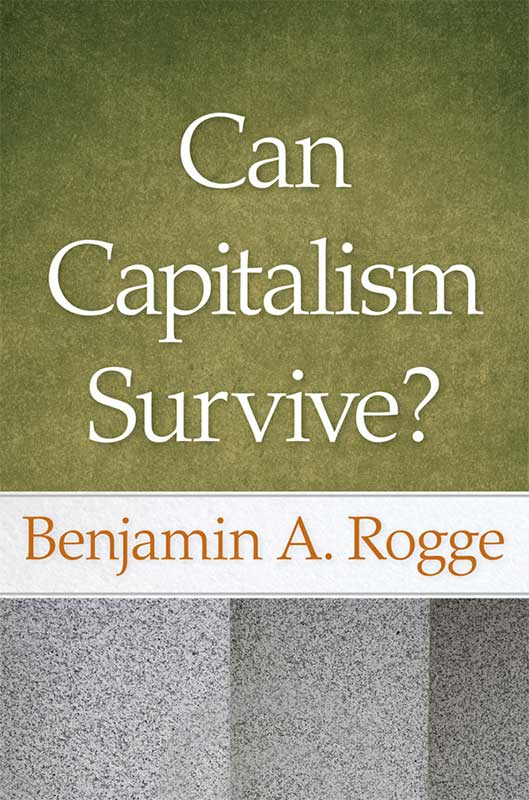Can Capitalism Survive?
By Benjamin A. Rogge
One of the signs of advancing age in the American college professor is a tendency for him to write less and publish more. This seeming paradox is easily explained by the phenomenon of
Collected Works, that is, by what on television would be described as reruns. As in television, no great public outcry is needed to bring forth the reruns; a question from his wife, a polite suggestion from a colleague, and the cut-and-paste operation is under way.I have put together here what I believe to be the best of the rather meager output of my professional career up to this point. For reasons (mostly financial) that always seemed adequate at the moment, I have been more of a speechmaker than a writer. Thus, you will find that many of the pieces in this collection are but speeches put down on paper…. [From the Foreword]
First Pub. Date
1979
Publisher
Indianapolis, IN: Liberty Fund, Inc. Liberty Fund, Inc.
Pub. Date
1979
Comments
Collected essays.
Copyright
The text of this edition is under copyright. Picture of Benjamin Rogge: file photo, courtesy of Liberty Fund, Inc.
- Foreword
- Part I, Introduction
- Part I, Chapter 1, Can Capitalism Survive
- Part II, Introduction
- Part II, Chapter 1, The Case for Economic Freedom
- Part II, Chapter 2, The Libertarian Philosophy
- Part II, Chapter 3, Who is to Blame
- Part II, Chapter 4, Paradise in Posey County
- Part III, Introduction
- Part III, Chapter 1, Adam Smith, 1776-1976
- Part III, Chapter 2, Christian Economics: Myth or Reality
- Part III, Chapter 3, College Economics: Is It Subversive of Capitalism
- Part IV, Introduction
- Part IV, Chapter 1, Profits
- Part IV, Chapter 2, The Businessman
- Part V, Introduction
- Part V, Chapter 1, The Labor Monopoly
- Part VI, Introduction
- Part VI, Chapter 1, The Long-Run Economic Outlook
- Part VI, Chapter 2, Alleged Causes of Inflation, Corporate Monopolies
- Part VII, Introduction
- Part VII, Chapter 1, The Problems of Cities
- Part VIII, Introduction
- Part VIII, Chapter 1, Financing Higher Education in the United States
- Part VIII, Chapter 2, The Promise of the College
- Part IX, Introduction
- Part IX, Chapter 1, The Businessman and the Defense of Capitalism
- Part IX, Chapter 2, Reflections on the Election of 1964
- Part IX, Chapter 3, The Foundation for Economic Education, Success or Failure
Part II, Introduction
Part II
THE PHILOSOPHY OF FREEDOM
In this section I present those papers in which I have attempted to set forth exactly what I stand for and why. The first paper, “The Case for Economic Freedom,” was given as a speech on numerous occasions (particularly at seminars organized by the Foundation for Economic Education at Irvington, New York) before being put down on paper. The second paper was originally prepared for an appearance before the students and faculty of the college where I teach, Wabash College, and was my attempt to tell them the kind of person (in Rogge) they were harboring in their midst. “Who’s to Blame” was presented to an even earlier convocation at Wabash College, at a time when I was serving as Dean of the College. It is presented as a further development of the idea of personal responsibility discussed in the first two papers of this section. “Paradise in Posey County” was another of my chapel messages to young men; in it I explore (and criticize) the idea of Utopia as displayed in two famous experiments in communal living in Indiana.
The Freudian Ethic (New York: Duell, Sloan, and Pearce, 1959) p. 166.
Heavens on Earth: Utopian Communities in America 1680-1880, 2d ed. (New York: Peter Smith, 1966), p. 101.
History of American Socialisms (1870), p. 43.
Part III

